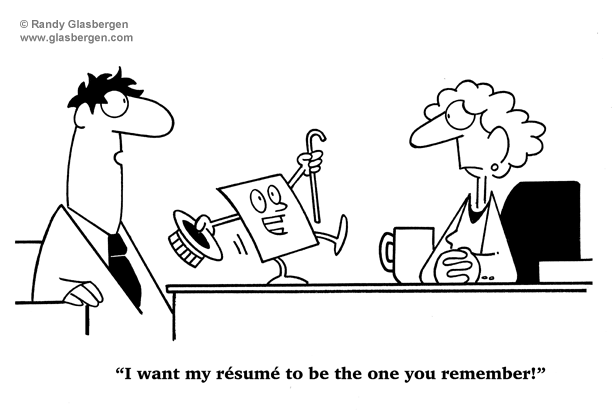I was blown away that my first article got over 2 million views. I've always been passionate about helping people find good jobs. But my advice in "The Biggest Mistakes I See on Resumes" was just a starting point: the basic stuff we all need to nail to get to that interview. (And remember, the ONLY purpose of a resume is to get you that interview!)

Among the 3,500+ comments, eight questions came up again and again. Since these posts are my 20% time project I can’t respond to each person. But so many people are facing the same issues that I want to address the biggest ones.
One caveat: these are my opinions, not official company policy. My qualifications are that I've personally reviewed more than 20,000 resumes, coached hundreds of high school and college students, veterans, and people of every age on how to get a job, and lead a recruiting machine that has seen over 20 million applications. But there's still a bunch of stuff I don't know, so take what I write with a grain of salt.
Now, on to your questions:
1. Should I have keywords and jargon on my resume?
Yes, alas, but put them in their own section. A major part of why we have unemployment - and why finding a job is so hard - is because resumes are awful at conveying who you really are and companies stink at screening resumes . Too many companies rely on clumsy software products that sort and filter resumes based on keywords. And too many recruiters do the same thing, looking for fancy schools or company names instead of at what you actually did. (Google applications are screened by real, live people.) Crummy as that is, it's reality. So for now, if you're in a technical field, have a section where you list all your programming languages. If you're in other professions, you may want to extract the buzzwords from the job posting and have a "skills" section (doesn't matter what you call it) where you can park your laundry list of jargon. Don't waste space on verbs. Just have a list. Save your compelling writing for the bullet points under each job. Lifehacker has some other good suggestions for getting past the machines. And I'm optimistic that somewhere out there someone is building a MUCH better system for inferring who you really are and understanding what employers really need.
 2. Should I pay someone to write my resume?
2. Should I pay someone to write my resume?
Nope. See my post here on how to write a resume that will get you noticed. Even better, find someone like you who already has the job you want. If you're a veteran, find someone from your service who works in the job and company you want. If you're a student, find an alumna/-us who has your dream job (your career center will have resume books you can mine). Emulate their resume. (Notice I didn't say "copy" ... big difference!) Look at how they described their experiences and accomplishments. They wrote things in a way that got noticed. They got it right. Do what they did. Don't waste your money on something you can get for free.
3. Should I include organizations where I worked more than 20 years ago?
You don't need to. For a competent hiring manager, your early experience isn't relevant. No one cares that I worked at an Olive Garden 20+ years ago. So on my resume I can pick some arbitrary cut-off point, have a "Prior experience" section, and summarize that I worked at a range of jobs in restaurants, non-profits, and manufacturing.
4. Do resumes predict performance?
I haven't seen anything to suggest they do. Resumes are a very poor information source. Work sample tests are actually the best predictor of performance, followed by tests of cognitive ability, which are best assessed using structured interviews. I've got three chapters explaining how you can become a world class interviewer in my book WORK RULES!, coming out in April, if you’re interested in learning more.
5. The best people don't always have the best resumes. Excluding someone because of a typo is stupid and you're a horrible person for doing that.
OK, (a) that's not a question. And (b), I confess that I do occasionally overlook an error, for example if the person writing the resume isn't a native English speaker. But (c), from the recruiter's perspective, if they have a choice between two equally impressive resumes, I think we can agree that the one that says "professional booger" instead of "blogger" is probably not going to get a call.
6. Shouldn't HR departments and recruiters work harder to find the best people? Why put the blame on the job seeker?

I want everyone to have the best possible chance of landing their dream job. That means controlling the parts of the application process you can. You can control every single word on your resume. You can't control the quality of the person reading it. But I will tell you that at recruiting firms they only get paid for filling jobs, so they do look hard at applications. What they see is in your control.
7. I'm a mom (or dad) coming back into the workforce after time off with my child. How do I explain the time off?
Don't apologize and don't hide. Put down that you took time off for your family. If you volunteered or did part-time work, list that too, but own your decision. Parents who have left the workforce and are coming back in are one of the biggest untapped sources of talent for recruiters. We get that at Google, and more and more other companies are starting to see it too.
8. Hey! You had a typo in your post!
Yes, but I promise you my resume is pristine! ;)
 Jane McNeill, regional director of Hays, spoke to Insurance Business on the release of the Hays Quarterly Report which details the key trends for the coming quarter in insurance jobs and spoke candidly about the challenges facing those in the industry.
Jane McNeill, regional director of Hays, spoke to Insurance Business on the release of the Hays Quarterly Report which details the key trends for the coming quarter in insurance jobs and spoke candidly about the challenges facing those in the industry.



































 \
\






























